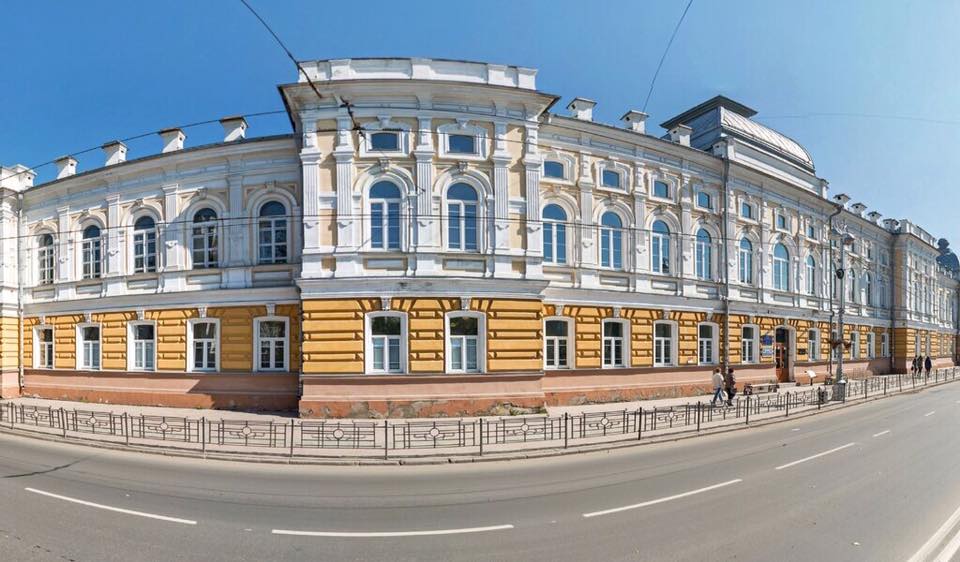1 Karl Marx str., office 305, Irkutsk 664003, Russia
Career Counselling

Irkutsk State University is a prominent educational and scientific institution in Irkutsk, Eastern Siberia. With over 18,000 students, of which a majority are enrolled in Bachelor’s degrees, it is a rapidly growing research University.
Academic and research activities at ISU are divided into 8 Institutes (International Business School, Continuing Education, Mathematics and Information Technologies, Economics and Linguistics, Philology, Foreign Languages and Media Communication, Pedagogy, Law, and Social Sciences) and 11 Faculties (Biology and Soil Stu...
| Establishment year | 1918 |
| Total Students | 18,000+ |
| International Students | 764 (in 2018) |
| QS World University Rankings 2024 | 1401+ |
| Campus Size | N/A |
| Total Number of Campuses | 1 |
| University Website | https://isu.ru/en/ |
| No. of Schools and Divisions | 8 Institutes and 11 Faculties |
| Nobel Prize Winner Alumni | 0 |
| No. of Education Programs | 101 (undergraduate), 54 (Master’s) |
| Student to Faculty ratio | N/A |
Irkutsk State University offers undergraduate and postgraduate courses through 11 Faculties (which are divided into Departments) and 8 Institutes (which are divided into Schools).
The Institutes of ISU are as follows:
International applicants to undergraduate courses at Irkutsk State University must satisfy the following entry requirements:
International applicants to Master’s courses must submit translated copies of Bachelor’s degree transcripts and certificates from a recognized University. They must also appear for an interdisciplinary test in the subject they have chosen as their specialization for their postgraduate degree at ISU.
All international applicants to Irkutsk State University must submit their application form to the International Office of the University by June 1, if they want to join during the Fall Semester, or October 1 for the Spring Semester.
The following documents must accompany the application form:
All foreign nationals must also appear for entrance examinations. International applicants from countries other than the erstwhile Soviet states have to pass Level 1 of the Russian as a Foreign Language examination and submit a certificate proving this. International applicants from ex-CIS countries (e.g. Tajikistan, Georgia, Kazakhstan, Belarus, and Kyrgyzstan) must pass the Unified State Examination (USE) in subjects relevant to the program for which they are applying. Applicants who have not appeared for the USE must take online tests created by the University.
Undergraduate tuition fees for international students at ISU vary according to the program. These are some indicative values:
Master’s courses at ISU have annual tuition fees that are 10% - 20% higher than Bachelor’s courses in similar disciplines:
The main component of living costs at ISU is accommodation. Depending on the dormitory chosen, this can range from 2,500 to 5,000 rubles per month; this adds up to 50,000 rubles (~USD 610) per year, assuming that ten months are spent on campus. Other living costs include food, travel, personal shopping, and academic infrastructure (e.g. laptop) purchases.

The Student Union at Irkutsk State University operates a large number of student organizations and clubs. These include sports clubs, six dance clubs, the ISU choir for classically trained vocal musicians, the musical band, the literature club, the club of intellectuals, the mountain tourism club, and the club for comedians.
Sports clubs at ISU can broadly be divided into three categories: fitness, sports and games, and martial arts. Under the first category, there are clubs dedicated to CrossFit and elastic training. Within the second category, there are sports like volleyball, basketball, and table tennis. The third category has clubs dedicated to boxing, Pankration, and Brazilian Jiu Jitsu.

ISU supports the UN Sustainable Development Goals. For example, it has a special quota to admit low income and disabled students. It offers free breakfasts for all full time students. Through a city clinic in Irkutsk, members of the University community can access free healthcare. There is gender equality in admission and employment. Water waste is minimized, and energy consumption per capita constantly decreases from year to year. There is ethical sourcing of food and other raw materials and responsible waste disposal. Members of the University carry out various ecological projects related to reducing waste and plastic dumping in the nearby Lake Baikal. There is a robustly elected Student Body to ensure representation of all sections of the University in the decision making process.
Every Institute and Faculty operates its own dormitories for its students. There are different types of accommodations, from sectional units consisting of 2-4 rooms, to long corridors with many rooms and shared facilities. All students have access to kitchens, laundry facilities, and study areas within their dormitories. These are located close to sports and cultural facilities, from indoor health, sports, and fitness halls to common indoor and outdoor locations meant for recreational activities.
Many students at ISU have their studies partially or completely subsidized through a grant by their Government or home University. For example, the Chinese Government selects deserving students from China studying at ISU for scholarships.
ISU has implemented a unique broad based system of financial aid for students (both domestic and international) from low income families. Over 1,500 social scholarships are awarded every year based on financial need; these entail a partial or complete waiver of tuition fees. In addition, over 7,500 students receive one time financial aid through the material assistance program for short term funding.
